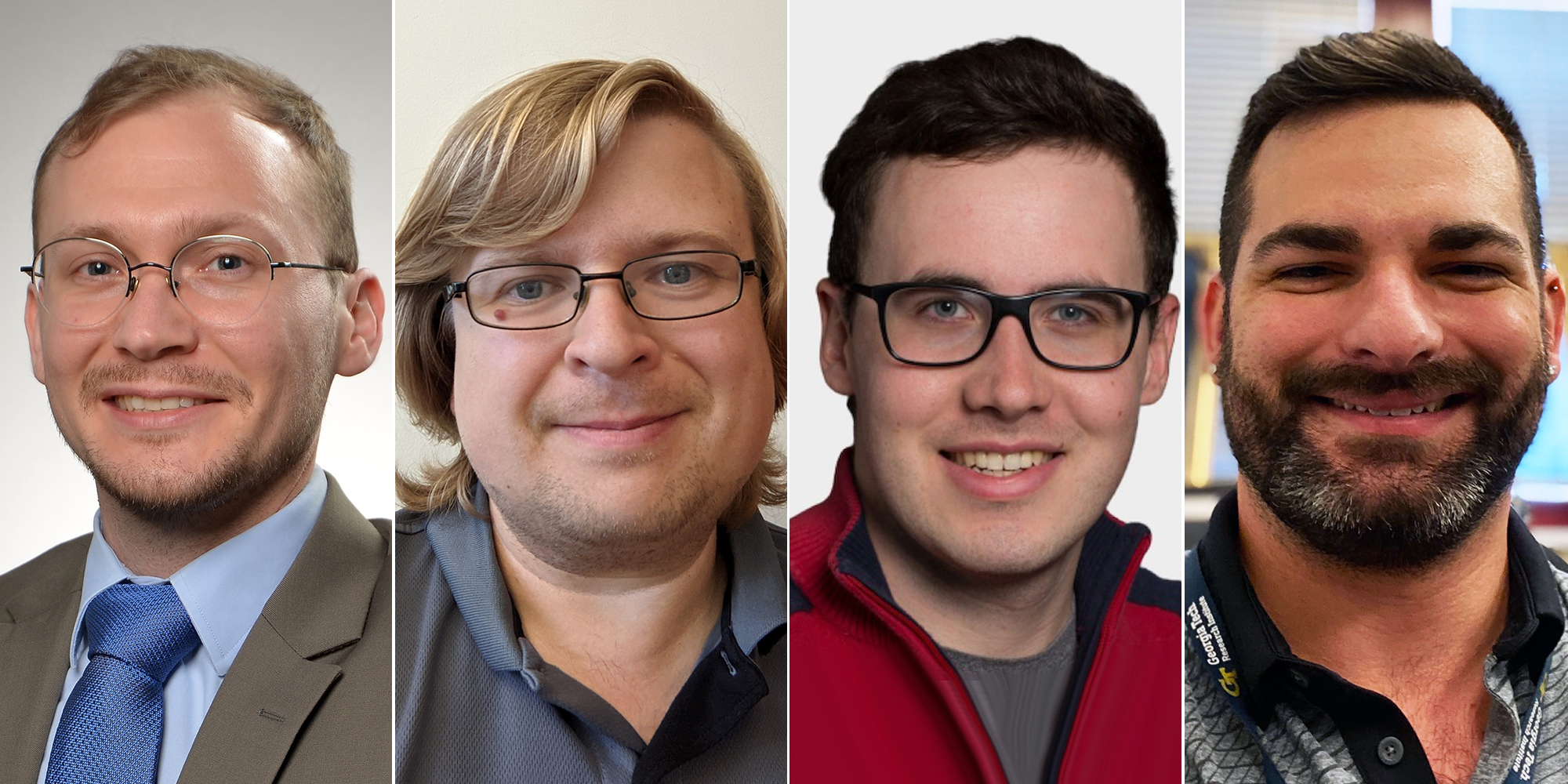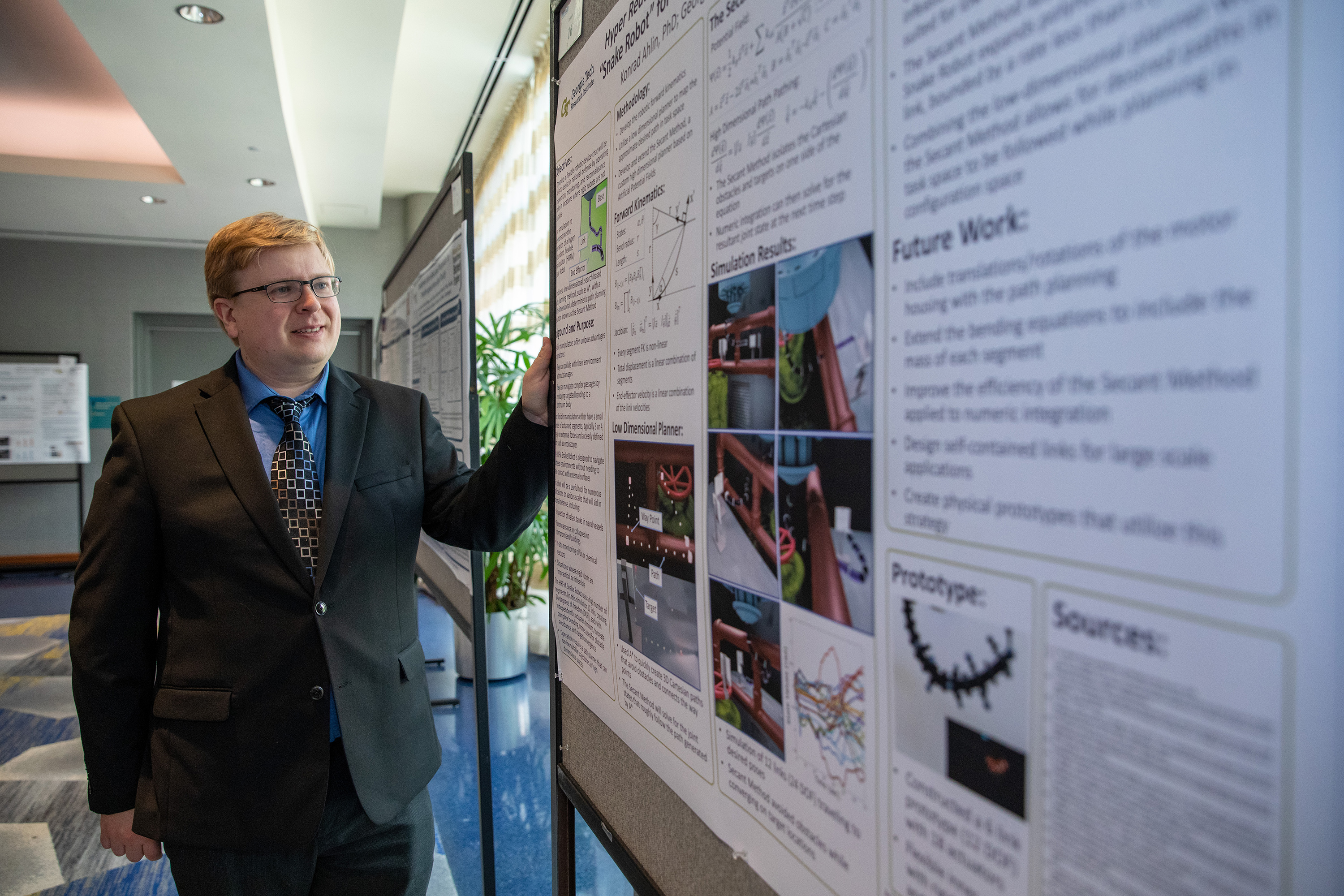Georgia Tech/GTRI Researchers Recognized as DARPA Risers
A dozen Georgia Institute of Technology researchers, including four from the Georgia Tech Research Institute (GTRI), were recognized as DARPA Risers during the agency’s recent DARPA Forward conference in Atlanta.

DARPA Risers are up-and-coming standouts in their fields, whose research is related to national security and demonstrates the potential to lead to technological surprise — the heart of DARPA's mission. The Risers program provides individuals in the early stages of their research career a unique opportunity to be recognized for their notable work and present their ideas directly to DARPA.
Risers were nominated by DARPA program managers and stakeholders at their home universities, said Stefanie Tompkins, DARPA’s director. Their ability to create technological surprise, she said, “is something very special to us at DARPA.”

In all, 20 DARPA Risers were invited to attend the recent conference. They presented posters, and five – including four Georgia Tech faculty members – were selected to make brief presentations on their research. From a broad range of disciplines, the DARPA Risers from Georgia Tech are:
Konrad Ahlin, a research engineer in GTRI’s Aerospace, Transportation, and Advanced Systems Laboratory (ATAS), who was recognized for “Hyper-Redundant, Flexible Manipulator for DoD Applications.”
Mathieu Dahan, assistant professor in the School of Industrial and Systems Engineering, who was recognized for work on “Strategic Allocation of Heterogeneous Resources to Fortify Complex Networks and Detect Attacks.”
Thomas Gartner, assistant professor in the School of Chemical and Biomolecular Engineering, who was recognized for “Machine Learning-Enhanced Molecular Simulation Tools for Advanced Polymer Materials.”
Quinton Guerrero, a research scientist in GTRI’s Sensors and Electromagnetic Applications Laboratory (SEAL), who was recognized for “Fractional Fourier Transformed Prolate Spheroidal Sequence Waveforms for MIMO Systems.”
Brian McMahon, a research scientist in GTRI’s Cybersecurity, Information Protection, and Hardware Evaluation Research Laboratory, who was recognized for “Experimental Work on Developing Trapped-Ion Systems for Quantum Computing and Simulation.”
Akanksha Menon, assistant professor in the School of Mechanical Engineering, who was recognized for “Water and Energy Harvesting Using Thermally Responsive Materials.”
Vidya Muthukumar, assistant professor jointly appointed in the School of Electrical and Computer Engineering and the H. Milton Stewart School of Industrial and Systems Engineering, who was recognized for “Data-Adaptive Algorithms for Learning in the Presence of Strategic Behavior.”
Paul Pearce, assistant professor in the School of Cybersecurity and Privacy, who was recognized for “Algorithmic and Systems Foundations for IPv6 Internet Scanning.”
Christopher Peterson, a research engineer in GTRI’s Advanced Concepts Laboratory (ACL), who was recognized for “Symmetry-Breaking and Symmetry-Protection in Electromagnetic Structures.”
Ahmed Saeed, assistant professor in the School of Computer Science, who was recognized for “Improving the Performance and Robustness of LEO Satellite Networks.”
Anqi Wu, assistant professor in the School of Computational Science and Engineering, who was recognized for “Understanding the Brain Using Interpretable Machine Learning Models.”
Danfei Xu, assistant professor in the School of Interactive Computing, who was recognized for “Learning to Solve Long-Horizon Robotics Tasks with Human-In-The-Loop.”
DARPA held one of its six DARPA Forward conferences on Oct. 25 and 26 at the Georgia Tech Hotel and Conference Center. The purpose of the meeting was to connect with academic and industry innovators with the goal of growing the agency’s community of talent and partnerships. The meeting was part of a series being held in key U.S. research and development hubs.
Writer: John Toon (john.toon@gtri.gatech.edu).
GTRI Communications
Georgia Tech Research Institute
Atlanta, Georgia USA

About GTRI: The Georgia Tech Research Institute (GTRI) is the nonprofit, applied research division of the Georgia Institute of Technology (Georgia Tech). Founded in 1934 as the Engineering Experiment Station, GTRI has grown to more than 2,800 employees, supporting eight laboratories in over 20 locations around the country and performing more than $700 million of problem-solving research annually for government and industry. GTRI's renowned researchers combine science, engineering, economics, policy, and technical expertise to solve complex problems for the U.S. federal government, the state, and industry. For more information, please visit www.gtri.gatech.edu.